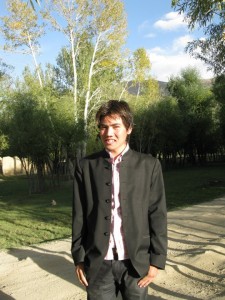Ali Fayez, is from Kabul, Afghanistan. He is currently studying sociology at university, while he also is the administrative manager in Afghans for Progressive Thinking, a non-profit and non-government organization working with university students in three province of Afghanistan.
As a 21 year old born and raised in Afghanistan, I can remember when the Taliban was in power and girls couldn’t go to school and women couldn’t even walk safely to the bazaar. From my perspective, there has been a 180 degree change in the lives of women since the new Afghan government was established. Now we have woman politicians, singers, officers, pilots, service members, commanders and parachutists. Afghan women now play a critical role in our country, paving the way for future generations. All these changes follow the Bonn conference, a very historic point in our new beginning. Once the Taliban was ousted from power, the provincial government allowed women to go to schools, universities and even become ministers in government.
Though these changes are significant, I do not think they are sustainable. If we look at the history of women in the West, they came into public life because they were needed in factories and other roles in society. Now looking at Afghanistan, one of the reasons the changes are not sustainable is that everything happened suddenly and without changing the opinions and beliefs of the people first.
Afghanistan is a backwards country mostly because of peoples’ religious beliefs combined with their traditional and tribal values. This is not to say they are good believers as many just reduce the high values of religion to formal actions. I recently attended a conference  for the unveiling of a book written by a high and competent authority of Shia Muslims. In that book the author comments on some of the very elegant chapters of the Koran concerning women. He shows very unique and beautiful concepts from those chapters and narrations, which affirms the equality of men and women.
Peoples’ religious and tribal beliefs are not the only threats to women in Afghanistan. The poor economy that prevents them from working forces them to stay in their homes. Security issues are also a problem for women as they keep all villagers poor, without education or opportunities. We need to bring about a cycle of change within society to alter the environment in which women suffer. When we do this, we will witness positive and sustainable changes.

0 Comments